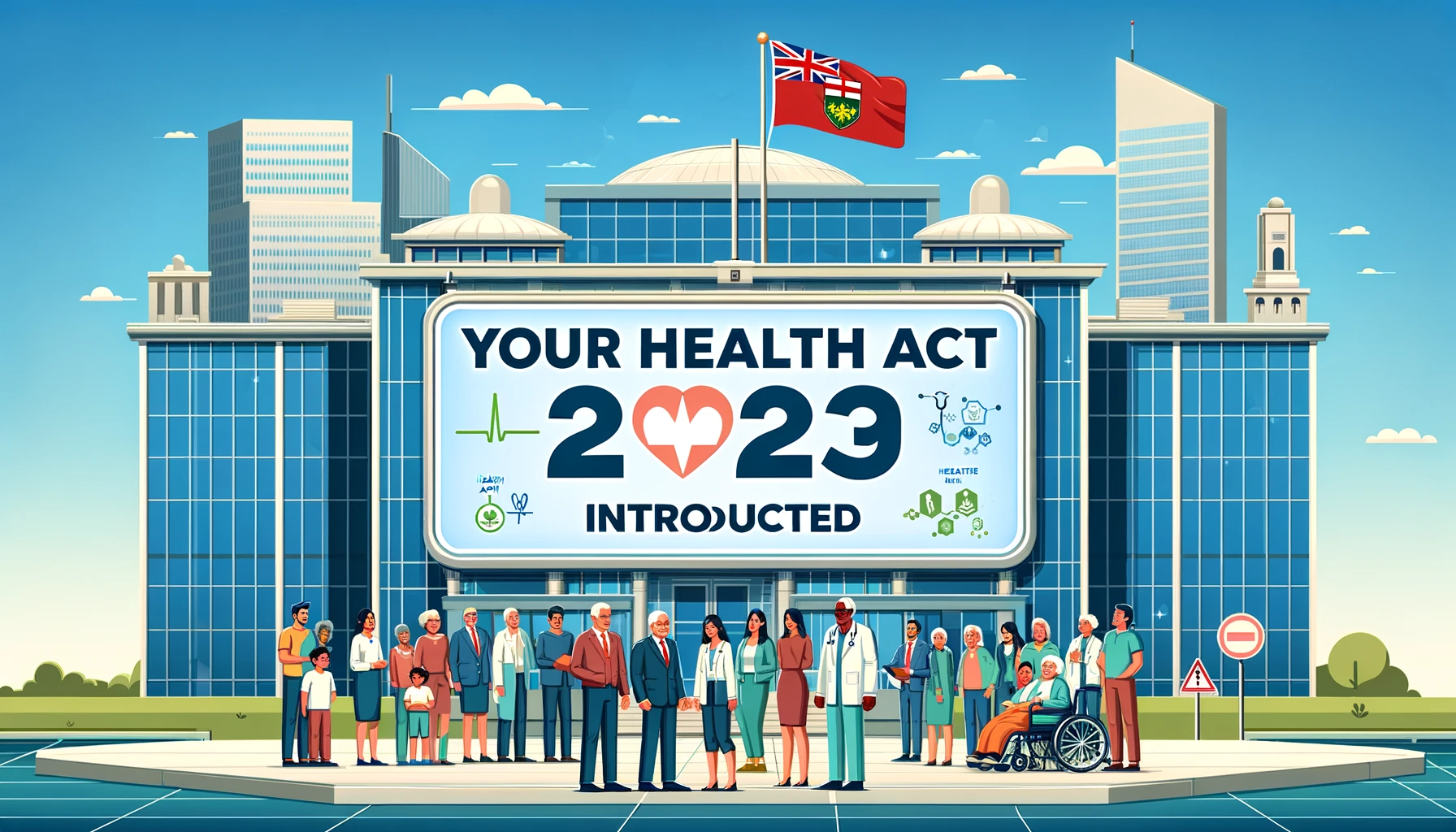From “The Newsroom” Ontario.ca:
The Ontario government has introduced the Your Health Act, 2023, which outlines the province’s next steps in its plan to reduce wait times for surgeries, procedures and diagnostic imaging, while enabling its new “As of Right” rules to automatically recognize the credentials of health care workers registered in other provinces and territories.
“With the Your Health Act, Ontario is boldly breaking with a status quo that has stifled innovation and struggled to respond to growing challenges and changing needs,” said Sylvia Jones, Deputy Premier and Minister of Health. “Instead, our government is being bold, innovative and creative. We’re making it easier and faster for people to connect to convenient care closer to home, including and especially the surgeries they need to maintain a high quality of life.”
Based on feedback from frontline partners, the Your Health Act, 2023 will, if passed, enhance guardrails to integrate community surgical and diagnostic centres into the health system, enhance quality standards and oversight while protecting the stability of doctors, nurses and other health-care workers in public hospitals and other health-care settings. The legislation will also, if passed, put into law that people will always access insured services at community surgical and diagnostic centres with their OHIP card and never their credit card, consistent with the Canada Health Act.
If passed, the Your Health Act, 2023 will require applicants to outline how the new community surgical and diagnostic centre will promote connected and convenient care, including its capacity to improve patient wait times and improve patient experiences, as well as its plans to integrate with the health system. The legislation will also, if passed, require centres to provide a description of current linkages with health system partners and how the centre will maintain and improve those linkages to promote optimal patient care pathways.
Ontario Health will also ensure that these centres are included in regional health system planning, including connection and reporting into the province’s wait times information system and participation in regional central intakes, where available. Community surgical and diagnostic centres will also coordinate with local public hospitals to accept patients that are being referred, ensuring people get the surgery they need as quickly as possible.
As the province expands the types of surgeries and procedures being done in the community to include hips and knees and orthopedics, it will ensure the new community surgical and diagnostic centres have in place the highest quality standards with strong oversight. The Your Health Act, 2023 will, if passed, enable the province to designate one or more expert organizations as inspecting bodies of the centres. To be completed before hips and knees and orthopedics are expanded to community surgical and diagnostic centres, these expert organizations will work with Ontario Health and the Ministry of Health to establish, maintain and publish quality and safety standards and establish schedules for regular inspections of the centres. The province is working with its frontline partners to determine what organizations are best positioned to serve as inspecting bodies and is exploring several options, including continuing the role of regulatory colleges to ensure continuity of the existing quality assurance programs. By naming inspecting bodies, the government will ensure flexibility to appoint additional or alternate inspecting bodies in the future to support system change as required.
The Your Health Act, 2023 will also, if passed, require centres applying for a licence to provide details of its quality assurance and continuous quality improvement programming, including policies for infection prevention and control. These details will be considered against the quality standards set by the expert organizations designated as inspecting bodies.
If an individual believes they did not receive the highest quality care, the Your Health Act, 2023 will, if passed, also mandate that every community surgical and diagnostic centre must have a process for receiving and responding to patient complaints. This process will include the documentation of all complaints and the timely response and actions taken by the centre. If patients are not able to have their complaints addressed at the centre, they will be able to seek help from the patient ombudsman.
The Your Health Act, 2023 will also, if passed, include community surgical and diagnostic centres under the oversight of Ontario’s patient ombudsman. The province also expects the patient ombudsman to report on any patient complaints and will adjust quality and oversight controls as needed to be responsive to these concerns.
The legislation will, if passed, mandate several components of a proposed centre’s application to protect the stability of doctors, nurses and other health-care workers at public hospitals and other health-care settings. This includes the requirement to submit a detailed staffing model, including evidence of its sustainability and the specific model for staffing anaesthesia delivery, given specific concerns about the global availability of these professionals. The centres will also be required to provide a description of how it consulted with health system partners, including public hospitals, in the development of its application, including any endorsements, which will be considered before any licence is granted.
If passed, the Your Health Act, 2023 will lead to a requirement that physicians employed by community surgical and diagnostic centres must also have privileges to do the same work in a hospital. This will ensure that anyone seeking emergency care at a hospital will be able to receive the urgent treatment they need. The legislation will also, if passed, enable Ontario Health and the Ministry of Health to require centres to report on their compliance with these health care workforce protections.
Consistent with the Canada Health Act, the Your Health Act, 2023 will, if passed, reinforce that people always receive insured services using their OHIP card, never their credit card. If passed, no centre will be allowed to refuse service to someone because they choose not to purchase upgrades, such as an upgraded cataract lens, and people cannot pay an additional fee to receive services faster than anyone else. The Your Health Act, 2023 will also, if passed, require centres to transparently provide this information upfront and ensure there is a mechanism to address people’s concerns.
The Your Health Act, 2023 will, if passed, enable the recently announced “As of Right” rules that allow health care workers registered in other provinces and territories to immediately start working and caring for people in Ontario without having to first register with one of Ontario’s health regulatory colleges. These changes will help health-care workers overcome bureaucratic delays that have made it difficult to practice in Ontario.
The legislation will also, if passed, strengthen protections for personal health information and data as the province puts in place new models to better inform policy and program planning to improve services. These changes will support improvements to the health care system by integrating data while enhancing privacy protection, transparency and accountability for organizations that collect and use data.
Your Health: A Plan for Connected and Convenient Care will put Ontarians back in charge of their health, making it easier and more convenient to navigate care at every stage of their life, providing more ways to receive care closer to home, and ensuring that people will be able to get the care they need faster, when it can have the greatest impact to their health.

